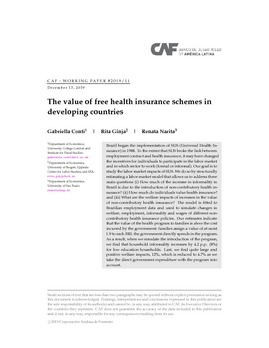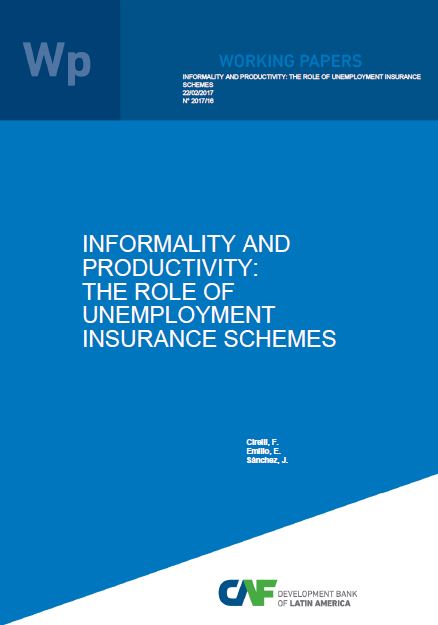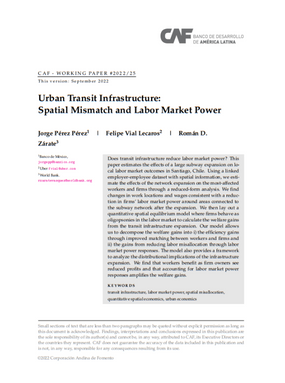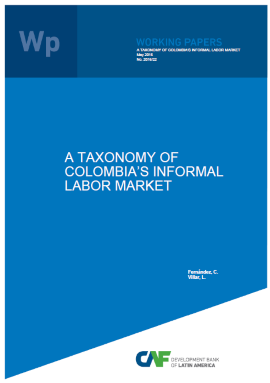Mostrar el registro sencillo del ítem
The Value of Free Health Insurance Schemes in Developing Countries
| dc.contributor.author | Conti, Gabriella | |
| dc.contributor.author | Ginja, Rita | |
| dc.contributor.author | Narita, Renata | |
| dc.coverage.spatial | América Latina y el Caribe | es_ES |
| dc.coverage.spatial | Brasil | es_ES |
| dc.date.accessioned | 2020-01-20T13:47:31Z | |
| dc.date.available | 2020-01-20T13:47:31Z | |
| dc.date.issued | 2019-12-13 | |
| dc.identifier.citation | Conti, G., Ginja, R., & Narita, R. (2019, December 13). The Value of Free Health Insurance Schemes in Developing Countries. Caracas: CAF. Retrieved from https://scioteca.caf.com/handle/123456789/1519 | en_GB |
| dc.identifier.uri | https://scioteca.caf.com/handle/123456789/1519 | |
| dc.description.tableofcontents | Brazil began the implementation of SUS (Universal Health Insurance) in 1988. To the extent that SUS broke the link between employment contract and health insurance, it may have changed the incentives for individuals to participate in the labor market and in which sector to work (formal or informal). Our goal is to study the labor market impacts of SUS. We do so by structurally estimating a labor market model that allows us to address three main questions (i) How much of the increase in informality in Brazil is due to the introduction of non-contributory health insurance? (ii) How much do individuals value health insurance? And (iii) What are the welfare impacts of increases in the value of non-contributory health insurance? The model is fitted to Brazilian employment data and used to simulate changes in welfare, employment, informality and wages of different noncontributory health insurance policies. | es_ES |
| dc.language.iso | en | es_ES |
| dc.publisher | CAF | es_ES |
| dc.subject | Innovación social | es_ES |
| dc.subject | Políticas públicas | es_ES |
| dc.subject | Salud | es_ES |
| dc.title | The Value of Free Health Insurance Schemes in Developing Countries | es_ES |
| dc.type | workingPaper | es_ES |
| dc.publisher.city | Caracas | es_ES |
Ficheros en el ítem
Este ítem aparece en la(s) siguiente(s) colección(ones)
-
6.1 Documentos de trabajo en investigación socioeconómica
En esta colección se encuentran los documentos de trabajo sobre temas económicos y sociales prioritarios para la región.





